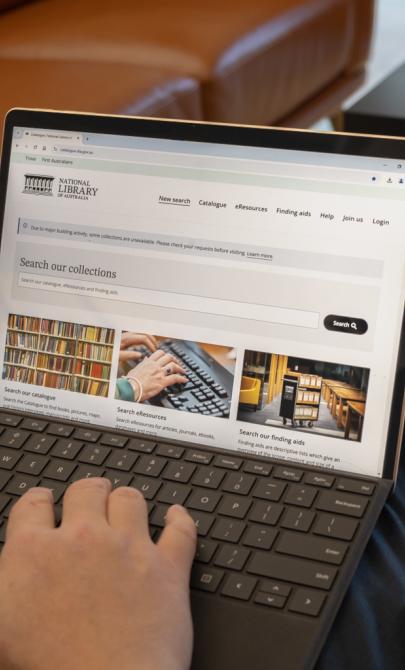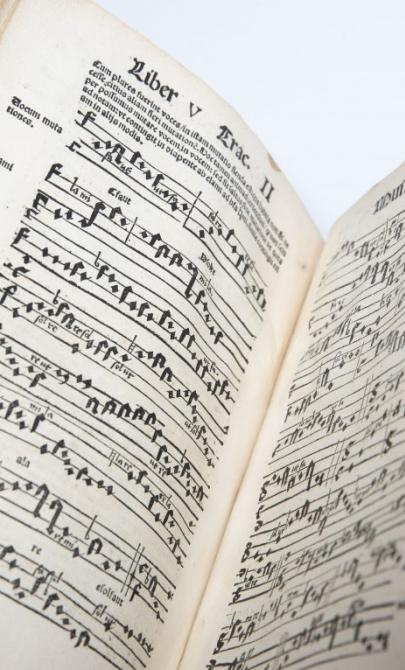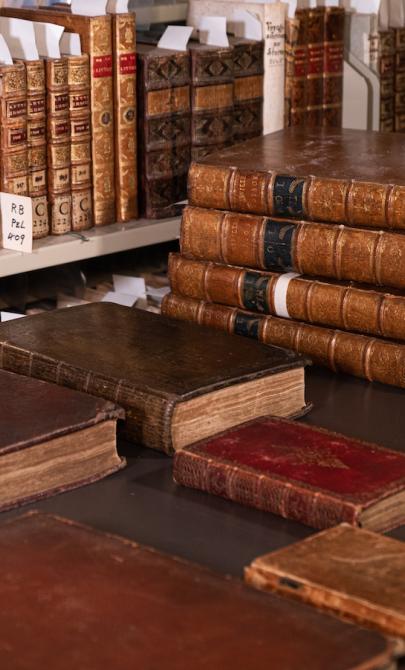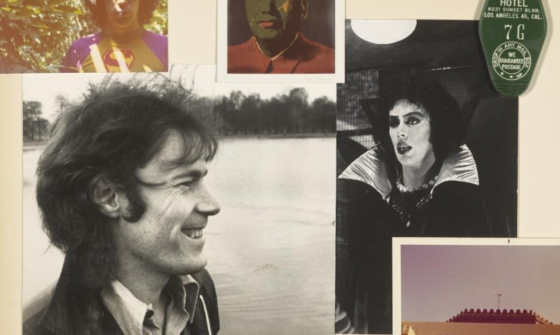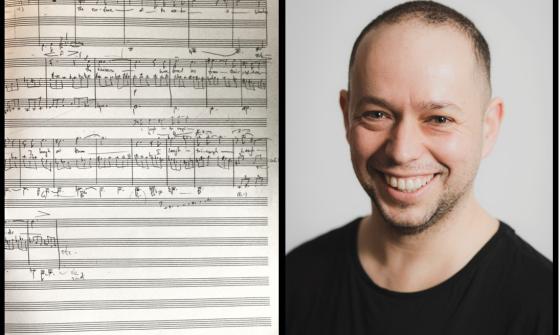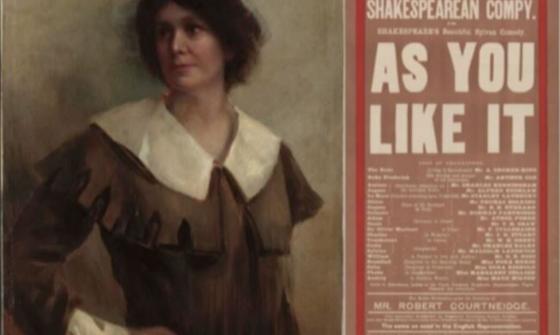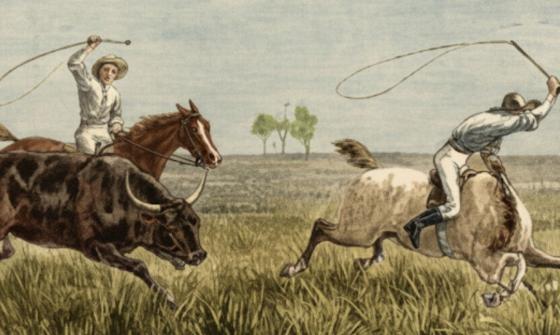Kassler Collection
About the collection
The Jamie and Michael Kassler Collection contains a significant collection of books on music and printed music published in Britain from the mid-17th century to the 20th century. It includes books on the practice of music, intonation and acoustics, theories of harmony and composition, histories of music, biographies of musicians, dictionaries of musical terms, and music periodicals. Many items have marks of ownership and annotations showing how they were used.
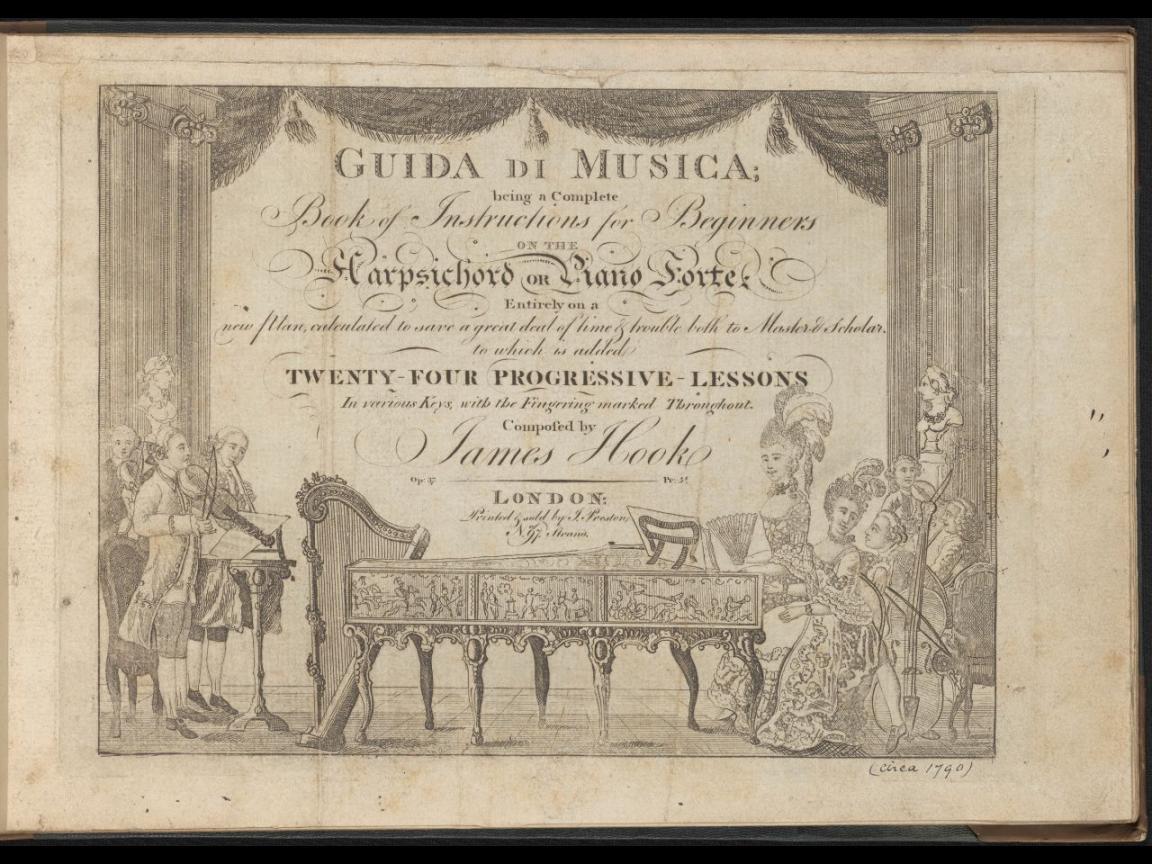
James Hook, Guida di Musica: Being a Complete Book of Instructions for Beginners on the Harpsichord or Piano Forte, nla.gov.au/nla.cat-vn8650184
James Hook, Guida di Musica: Being a Complete Book of Instructions for Beginners on the Harpsichord or Piano Forte, nla.gov.au/nla.cat-vn8650184
Key items in the collection
- Papers of Jamie and Michael Kassler, 1829-2015
- Papers of Michael Kassler, 1950-1983
- Charles Butler, The principles of musik, in singing and setting: vvith the two-fold use therof, ecclesiasticall and civil, (1636), London: Printed by Iohn Haviland, for the author
- René Descartes & William Brouncker, Renatus Des-Cartes excellent compendium of musick: with necessary and judicious animadversions thereupon, (1653), London: Printed by Thomas Harper, for Humphrey Moseley and by Thomas Heath
- Matthew Locke & John Carr, Melothesia: or, certain general rules for playing upon a continued-bass; with a choice collection of lessons for the harpsichord and organ of all sorts; never before published; the first part, (1673), London: Printed for J Carr
- Henry Purcell, John Cullen, William Pearson, Henry Playford & Frances Purcell, Orpheus Britannicus: a collection of all the choicest songs for one, two, and three voices, (1702-1706), London: Printed by William Pearson, and sold by John Young
- John Gay & John Christopher Pepusch, The beggar's opera: as it is acted at the Theatre-Royal in Lincolns-Inn-Fields. (1728), London: Printed for John Watts, at the Printing-Office in Wild-Court, near Lincoln's-Inn-Fields
- Francesco Geminiani, Guida armonica, o, Dizionario armonico: being a sure guide to harmony and modulation: in which are exhibited the various combinations of sounds, consonant and dissonant, progressions of harmony, ligatures and cadences, real and deceptive. (c.1742), London: Printed for the author, by J Johnson
- Robert Smith, Harmonics, or the philosophy of musical sounds, (1759), 2nd edition, much improved and augmented. London: Printed for T and J Merrill, Cambridge
- Jean-Jacques Rousseau, Dictionnaire de musique, (1782), Aux Deux-Ponts: Chez Sanson et compagnie
- Karl Friedrich Abel, JB Cramer, Charles Burney, & Thomas Broadwood, These adagio's, the composition of (the late) C.F. Abel, are now published as a tribute of respect to his memory, by his surviving and grateful pupil, J.B. Cramer, (1820), London: Printed for the proprietor, by the Royal Harmonic Institution
- John Alston, Musical catechism, with tunes, for the use of the blind, (1838), Glasgow: Printed in the Asylum, by the Institution Press
About Jamie and Michael Kassler
Dr Jamie C. Kassler and Dr Michael Kassler are eminent Australian scholars who specialised in English and European music theory and practice from the 17th to the 20th century and their relationships to philosophy, science, computing and printing. These interests form the basis of their collection of rare books, music, manuscripts and ephemera. The Kasslers came to Australia from the United States in 1974 on Michael Kassler's Guggenheim Fellowship and settled permanently in Sydney.
Jamie C Kassler
Jamie C Kassler, a musicologist and intellectual historian, was elected a Fellow of the Australian Academy of Humanities in 1991 for her contributions to musicology. In 2003 she received the Centenary Medal for service to Australian society and the humanities in the study of philosophy.
The subjects of her books and articles include:
- the science of music in the Georgian era
- the beginnings of the modern philosophy of music
- representing speech through musical notation
- musical models in fields such as early science and the brain and mental functioning
- Isaac Newton's sensorium concept
- the writings of the polymath Roger North.
Michael Kassler
Michael Kassler, a musicologist and computer consultant, was regarded by his composer-mentors including Henry Cowell and Milton Babbitt as a talented young composer. His honours degree at Harvard was in mathematics, and during his postgraduate work at Princeton University he developed the first programming language for musical information retrieval.
The subjects of his books and articles include:
- the theories of tonality of A.F.C. Kollmann and Heinrich Schenker
- the music trades in Georgian England
- the composer Samuel Wesley
- the awakening English interest in J. S. Bach and his music
- music entries at Stationers’ Hall.
Through his consultancy he advocated robotics and automation applications across Australian industries. He was a founder of the Australian Robot Association (now the Australian Robotics and Automation Association Inc.), and his publications include a guide to the robotics marketplace in Australia.
